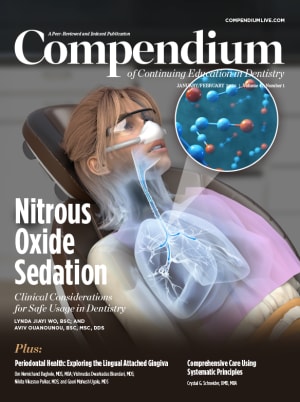Seismic Movement in Implant Dentistry Specialization
Shankar Iyer, DMD, MDS
Until about 250 million years ago, the earth consisted of only one massive continent. Over time, because of seismic shifts, land masses split, ultimately forming the seven continents we know today.
Dentistry, especially specialization, in the United States is much like the earth was 250 million years ago. The American Dental Association (ADA) is the “sole continent” when it comes to awarding specialty status. A seismic force, however, of which the American Academy of Implant Dentistry (AAID) is a part, is causing movement to alter the monolithic structure of specialization in dentistry.
Along with three other specialty organizations and their certifying boards not recognized by the ADA, the AAID helped form the American Board of Dental Specialties (ABDS). Several more “niche” specialty organizations also have evolved over the years and will continue to be developed based on patient needs. The specialty board organizations recognized by the ADA are also eligible and welcome to attain recognition by the ABDS.
The ABDS process for recognition of a specialty organization is not dependent on a vote of a House of Delegates. The criteria are clear and objective with no political influences. In addition, more than one Board may be recognized in any given specialty as long as that Board meets the criteria. The independent nature of the ABDS puts dentistry on similar footing as the medical specialty recognition process.
Implant dentistry as a specialty stands on its own two feet. Only parts of implant dentistry fall under existing ADA specialties. To be board certified in Implantology, a dentist must have training, knowledge, and expertise in at least three existing ADA-recognized specialties: periodontology, prosthodontics, and oral surgery. Additionally, the implant dentist must also be competent in anesthesia and radiology.
Today’s patients prefer a solo approach in which all services are provided under one roof. This lends itself to making treatment affordable and remaining with the same provider. In instances in which a specific procedure requires specialized, advanced care, a specialist in that specific area of care can be included on the treatment team. Most mainstream cases are best served when a board-certified implant dentist is able to handle the whole case from diagnosis to comprehensive treatment.
Since its founding in 1951, the AAID has recognized the comprehensive nature of implant dentistry and the need for a bona fide, robust credentialing process that is based on implant dentistry-focused education. The AAID and the American Board of Oral Implantology/Implant Dentistry (ABOI/ID) have been successful in achieving court recognition of implant dentistry credentials through litigation in states such as Florida, California, and Texas. These decisions have recognized the rights of implant dentists with AAID or ABOI/ID credentials to advertise that fact to patients. The legal basis for these court determinations was the legal concept of commercial free speech. However, the underlying reason for these rulings is that consumers are entitled to the necessary information to make informed decisions about their own care.
Most recently, the US Court of Appeals for the Fifth Circuit upheld a lower court decision that declared unconstitutional a Texas regulation that deferred to the ADA as the primary determination of specialty status in dentistry. The Court’s decision is binding throughout the Fifth Circuit, meaning that Louisiana, Mississippi, and Texas must comply with the decision.
These court victories in favor of AAID’s and ABOI/ID’s credentials are triumphs for the patient. However, patients also want to know that the dentists who are providing implant treatment have the comprehensive, unbiased education needed for this specialty field of dentistry. More than 30 years ago the AAID created a unique educational opportunity in implant dentistry: the AAID MaxiCourse®. Since its nascent beginning, this course is now taught in 17 different locations in eight countries throughout the world. The training in implant dentistry clinicians receive through MaxiCourses provides them with a continuum that not only introduces them to implants but offers instruction on proper diagnoses, treatment planning, techniques for placement and restoration, hard- and soft-tissue treatment options, and complications.
The seismic movement in the heretofore monolithic world of dentistry promises to reshape how patients are able to obtain the treatment they need from practitioners who have the recognized training, education, and experience to best provide it.
About the Author
Shankar Iyer, DMD, MDS
President
American Academy of Implant Dentistry (AAID)
Honored Fellow of the AAID
Diplomate of the American Board of Oral Implantology/Implant Dentistry (ABOI/ID)
